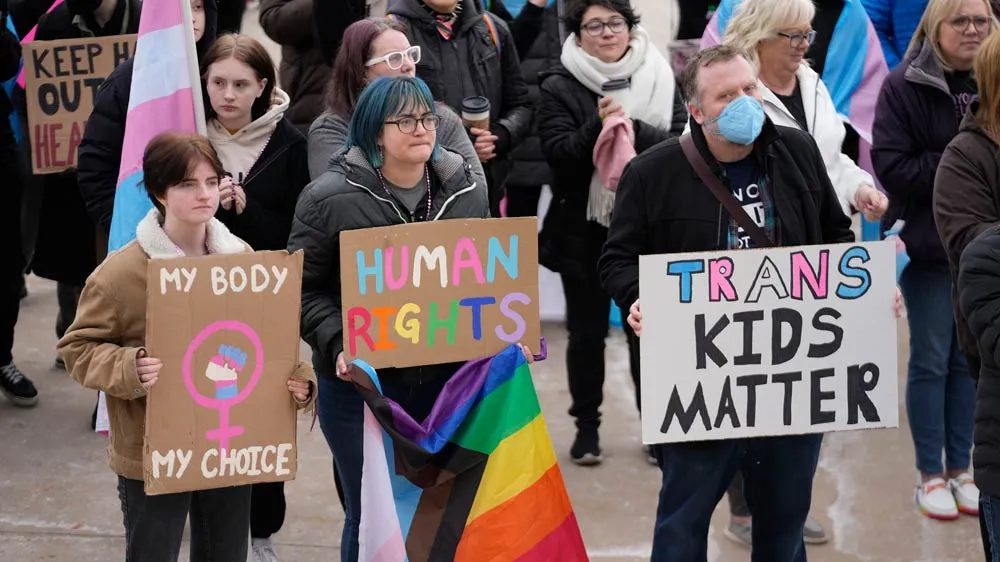September 7, 2017
US AIDS Conference Opens With $1M Donation to Help HIV Orgs Impacted by Hurricanes
READ TIME: 3 MIN.
A $1 million fund to help HIV organizations impacted by Hurricanes Harvey and Irma was announced today at the opening of the 21st annual U.S. Conference on AIDS in Washington, DC. The $1 million is being donated by Gilead Sciences.
The announcement was made at the USCA's opening plenary as the conference honored those working in communities devastated by the hurricane. Delegates from the affected regions were on stage for the announcement. Grants from these funds are being coordinated by AIDS United in collaboration with NMAC.
"Gilead's generous contribution will make a tremendous difference for people living with HIV and for organizations serving them that were ravaged by Hurricanes Harvey and Irma," said NMAC Executive Director Paul Kawata. "We must make sure that we reach the organizations most in need as rapidly as possible."
AIDS United will support the administration of the funds as part of the rapid response arm of its new Southern HIV Impact Fund. NMAC will appoint an HIV Hurricane Relief Advisory Panel made up of local community leaders to identify local needs and priorities to support AIDS United grantmaking.
"There is no greater emergency than the devastation of these powerful hurricanes," said AIDS United CEO Jesse Milan Jr. "We are thankful this rapid grantmaking process is in place and thrilled that Gilead is making available up to $1 million to support relief efforts for the HIV community."
In addition to the $1 million donation by Gilead Sciences, AIDS United has allocated $150,000 from the Southern HIV Impact Fund. AIDS United today released a request for applications for organizations in the affected communities. The awards will be made on a rolling basis.
"With hurricane-impacted regions facing a long recovery process, it is more important than ever that the critical services provided by HIV organizations in these areas continue to reach those in need," said Gregg H. Alton, Executive Vice President, Corporate and Medical Affairs, Gilead Sciences. "Gilead, AIDS United, and NMAC are committed to supporting their efforts to restore and maintain programs."
The U.S. South is an epicenter of the HIV epidemic in the U.S. According to the U.S. Centers for Disease Control and Prevention (CDC), more than half of new AIDS diagnoses and deaths occurred in the south. In 2015, Florida ranked first among states in terms of new diagnoses, Texas ranked third, and Louisiana ranked 11th.
"Hurricane Harvey adds a heightened sense of urgency to the organizations serving people living with HIV/AIDS," said John Barnes, executive director of Funders Concerned About AIDS, which brought together Gilead Sciences and other partners to create the Southern HIV Impact Fund. "We are calling on organizations across the country to join Gilead Sciences and others in supporting the work that must be done to reverse these troubling trends."
Organizations, businesses and individuals can make donations to the AIDS United Southern HIV Impact Fund here.
NMAC leads with race to urgently fight for health equity and racial justice to end the HIV epidemic in America. Since 1987, NMAC has advanced our mission through a variety of programs and services, including: a public policy education program, national and regional training conferences, a treatment and research program, numerous electronic and print materials, and a website: http://www.nmac.org/.
NMAC also serves as an association of AIDS service organizations, providing valuable information to community-based organizations, hospitals, clinics, and other groups assisting individuals and families affected by the HIV epidemic.
AIDS United's mission is to end the AIDS epidemic in the U.S. through strategic grant-making, capacity building, formative research and policy. AIDS United works to ensure access to life-saving HIV/AIDS care and prevention services and to advance sound HIV/AIDS-related policy for U.S. populations and communities most impacted by the epidemic.
To date, our strategic grant-making initiatives have directly funded more than $104 million to local communities, and have leveraged more than $117 million in additional investments for programs that include, but are not limited to HIV prevention, access to care, capacity building, harm reduction and advocacy.
For more information, visit aidsunited.org


